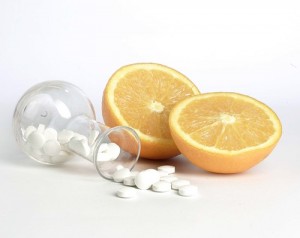When did ‘chemical’ come to mean the opposite of ‘natural’? Consider for example, caffeine isolated from cocoa beans or tea leaves versus caffeine synthesized in a laboratory. Is one better for you than the other?
In the view of the general public, substances that are ‘natural’ and those that are ‘chemical’ are seen as two different things. Natural seems to stand for something positive and pure: Things that are healthy, mild or ‘good for the environment’ whereas chemicals are often viewed as toxic, dangerous and unhealthy.
This misconception is called chemophobia: An irrational fear of chemicals and we are a chemophobic culture.
Have you ever had a sales assistant tell you that a product was made entirely from natural ingredients, and contained no chemicals? Most people would think this was a selling feature, but what are those natural ingredients? Is it possible they might also be chemical compounds? Surely they must be. Those ingredients had to of come from somewhere.
Our negative view of chemicals is influenced by the fact that some chemicals are used in dangerous man-made materials such as Agent Orange, DDT and napalm. Other chemicals are responsible for environmental problems like smog, air pollution and the formation of the ozone hole. That being said, chemophobics can be blind to the vast majority of chemicals they encounter everyday. Everything around us is composed of life’s building blocks: Carbon, hydrogen, oxygen and nitrogen, all of which are chemicals. Daily essentials that we require to live are chemicals. Water and the air we breathe are composed of oxygen and hydrogen. Arsenic is a naturally occurring element, but would we label is as “100% natural” and willingly consume it? I cannot stress enough that all matter is made of chemicals.
It’s important to understand the misleading notion of natural versus synthetic chemicals. It may shock some of you to know that sometimes synthetic is actually safer for your health, such as synthetic melatonin supplements since those naturally derived may contain viral material. In addition, some sources of synthetic chemicals are actually good for the environment. For example, natural sources of vanilla (the vanilla bean) are quickly being depleted and synthetic versions are our first alternative. In fact synthetic chemicals are indistinguishable from the natural source. They are molecularly identical with the exact same properties, appearance, smell and taste.
This widespread misconception colors public perceptions of chemistry and its role in the modern world. Chemophobia may not be as direct a threat to our future as say, climate change, but it clouds public understanding of real and very important issues we face.
-Nicole Gehring



















